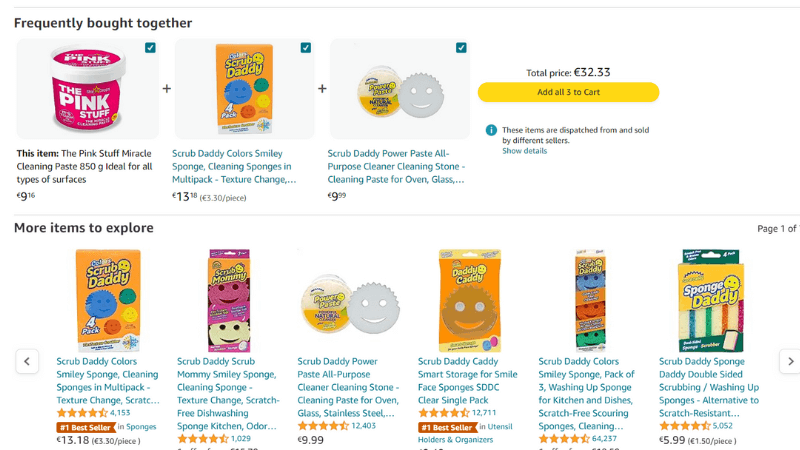Today, we’re diving deep into the world of AI-enhanced content challenges. Yep, you heard me right. In this digital age, where algorithms reign supreme and content is king, it’s crucial for small business owners and aspiring pros to understand how AI can supercharge their content game. So, buckle up because we’re about to explore strategies, tools, and real-life examples that you can start implementing right now to stay ahead of the curve.

Understanding the Landscape
Before we jump into the nitty-gritty, let’s take a moment to grasp what AI-enhanced content really means. Gone are the days when content creation relied solely on human wit and creativity. Nowadays, AI algorithms are shaking things up by assisting in everything from generating ideas to optimizing distribution strategies. But with great power comes great responsibility, right? That’s where the challenges come in.
Embracing the Power of AI
The first step is to embrace AI as your trusty sidekick, not a threat to your creativity. Think of it as having an extra pair of hands (or algorithms) to help you streamline your content production process.
Overcoming AI-Enhanced Content Challenges
Sure, AI might seem intimidating at first, but trust me, it’s not as complicated as it sounds. With the right mindset and willingness to learn, you’ll be harnessing its potential in no time.
Adapting to Constant Change
The digital landscape is ever-evolving, and AI is no exception. Stay agile, keep experimenting, and don’t be afraid to pivot your strategies when needed.
AI-Enhanced Content Challenges: Niche Strategies
Now that we’ve laid the groundwork, let’s dive into some niche-specific strategies and examples that you can apply to your own business or skillset.
1. E-commerce Entrepreneurs
If you’re running an online store, AI can be a game-changer for personalizing the shopping experience and driving conversions.

Example: Take a page out of Amazon’s playbook. Their recommendation engine analyzes user behavior to serve up tailored product suggestions, leading to higher sales and customer satisfaction.
2. Content Creators
Whether you’re a blogger, YouTuber, or social media influencer, AI tools can help you brainstorm content ideas, optimize SEO, and even automate mundane tasks like scheduling posts.
Example: BuzzSumo’s content research feature uses AI to analyze trending topics and competitor performance, giving you valuable insights for creating share-worthy content.
3. Freelancers and Consultants
For solo entrepreneurs offering services, AI can be a valuable ally in managing client relationships, streamlining project workflows, and even predicting market trends.
Example: HubSpot’s CRM platform leverages AI to track communication patterns, identify leads, and personalize outreach efforts, saving you time and boosting client satisfaction.
4. Healthcare Professionals
In the healthcare industry, AI is revolutionizing patient care, from diagnosis and treatment planning to administrative tasks like medical record management.
Example: IBM’s Watson Health platform uses AI to analyze vast amounts of medical data, helping doctors make more informed decisions and improve patient outcomes.
5. Education Sector
Educators and e-learning platforms can leverage AI to personalize learning experiences, assess student performance, and identify areas for improvement.
Example: Duolingo’s AI-powered language learning platform adapts lessons based on individual proficiency levels, making learning more efficient and engaging for users.
6. Real Estate Agents
AI tools can assist real estate professionals in analyzing market trends, predicting property values, and matching buyers with their dream homes.
Example: Zillow’s Zestimate algorithm uses AI to estimate property values based on various factors, empowering agents to make data-driven decisions.
7. Financial Advisors
For financial planners and investment advisors, AI can enhance portfolio management, automate routine tasks, and provide personalized recommendations to clients.
Example: Wealthfront’s robo-advisor uses AI algorithms to create and manage diversified investment portfolios tailored to individual goals and risk tolerance.
8. Legal Professionals
In the legal field, AI-powered tools can streamline case research, contract analysis, and document review, improving efficiency and reducing human error.
Example: LegalSifter’s contract review software employs AI to analyze legal documents, flag potential issues, and suggest revisions, saving lawyers time and effort.
9. Marketing Agencies
AI enables marketing agencies to optimize campaigns, target audiences more effectively, and analyze performance metrics in real-time for continuous improvement.
Example: AdRoll’s AI-driven ad platform leverages machine learning algorithms to deliver personalized ads across multiple channels, maximizing ROI for clients.
10. Hospitality Industry
Hotels and travel companies can use AI to enhance guest experiences, streamline operations, and improve revenue management through dynamic pricing strategies.
Example: Marriott International’s AI-powered chatbot, ChatBotlr, provides personalized recommendations and assistance to guests during their stay, enhancing satisfaction and loyalty.

Overcoming Challenges with AI
Now, let’s address some common hurdles that may arise when integrating AI into your content strategy, along with practical solutions.
AI-Enhanced Content Challenges: Fear of Automation Taking Over
Solution: Embrace Human-AI Collaboration
It’s natural to feel apprehensive about the rise of automation, but remember, AI is not here to replace you; it’s here to enhance your capabilities. Instead of fearing automation, embrace it as a tool to amplify your strengths. Focus on tasks that require human creativity, intuition, and empathy, while allowing AI to handle repetitive or data-driven tasks. By leveraging the unique strengths of both humans and AI, you can achieve greater efficiency and innovation in your content creation process.
Example: Imagine you’re a freelance writer working on a tight deadline. Instead of spending hours conducting research and fact-checking, you can use AI-powered tools to gather data and generate insights quickly. This frees up your time to focus on crafting compelling narratives and connecting with your audience on a deeper level.
AI-Enhanced Content Challenges: Data Privacy Concerns
Solution: Prioritize Ethical AI Practices
With the increasing use of AI comes growing concerns about data privacy and security. To address these concerns, it’s crucial to prioritize ethical AI practices and uphold the highest standards of transparency and integrity. When implementing AI initiatives, be transparent with your users about the data you collect, how it will be used, and who will have access to it. Implement robust security protocols to safeguard sensitive information and ensure compliance with relevant regulations, such as GDPR or CCPA. Above all, always seek explicit consent from users before collecting or processing their personal data.
Example: Let’s say you’re developing a chatbot for your website to assist customers with inquiries. Before accessing any user data, the chatbot explicitly asks for permission and provides clear information about how the data will be used. By prioritizing transparency and user consent, you build trust with your audience and mitigate potential privacy risks.
AI-Enhanced Content Challenges: Technical Barriers to Entry
Solution: Leverage User-Friendly AI Tools
One of the most common barriers to adopting AI is the perceived technical complexity involved. However, many AI tools today are designed with user-friendliness in mind, offering intuitive interfaces and comprehensive documentation to guide users through the implementation process. Don’t let a lack of technical expertise hold you back from exploring the potential of AI. Instead, seek out tools and platforms that cater to users of all skill levels and provide ample support resources, such as tutorials, forums, and customer support.
Example: Suppose you’re a small business owner looking to implement AI-powered chatbots to improve customer service on your website. Instead of hiring a team of developers, you opt for a user-friendly chatbot platform that offers drag-and-drop interface customization and step-by-step guides. With minimal technical knowledge required, you’re able to deploy a fully functional chatbot in no time, enhancing the overall customer experience.

AI-Enhanced Content Challenges – Wrapping up
Phew, we covered a lot of ground today, but remember, knowledge is only valuable when put into action. So, whether you’re a small business owner looking to level up your content game or an aspiring pro eager to upskill in various domains, AI is your ticket to success in the digital arena. Embrace the challenges, harness the power of AI, and keep hustling towards your goals. The future is bright, my friends!
Now, if you’re hungry for more insights and tips on navigating the ever-changing landscape of digital entrepreneurship, be sure to check out our other articles on the blog. Until next time, keep grinding and stay curious!













